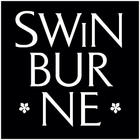Bachelor of Media and Communication/ Bachelor of Applied Innovation
Bachelor of Media and Communication/ Bachelor of Applied Innovation
Unique to Swinburne, the Bachelor of Media and Communication/Bachelor of Applied Innovation double degree is the ideal beginning to a career that encompasses the challenging and dynamic area of media and communication and innovation. With so many majors to select from, there’s something for everyone interested in a career in…
Categories
COURSE DESCRIPTION
Unique to Swinburne, the Bachelor of Media and Communication/Bachelor of Applied Innovation double degree is the ideal beginning to a career that encompasses the challenging and dynamic area of media and communication and innovation.
With so many majors to select from, there’s something for everyone interested in a career in media and communications. Subjects include advertising, writing and literature, journalism, public relations and social media. You’ll examine issues such as diversity, the influence of social networking data, ownership and privacy, automated media and the digital economy.
You’ll also benefit from Swinburne’s partnership with Adobe which gives you free access to, and coaching in, the Adobe Creative Cloud while studying.
Applied innovation, meanwhile, boosts your media and communication potential as you learn in a multidisciplinary, experiential environment that values collaboration, creativity and complex problem-solving. Develop leadership potential, persistence, and human understanding as you learn what it takes to drive meaningful change through innovative ideas. Undertake projects inspired by your passions and interests; then graduate with a portfolio to prove your innovation credentials.
Experiential learning is key to our bachelor courses, so you’ll have the opportunity to explore a range of quality placements, internships and industry-related projects.
Whether it’s a media and communication career in content creation, public relations, cinema and screen, or social media, or a career as an innovation specialist in roles such as innovation consultant, innovation or transformation lead, human-centred researcher, innovation strategist or innovation manager, this double degree is made for you.
Course learning outcomes
On successful completion of this course, graduates will be able to:
critically execute knowledge, conceptual understanding, technical skills and expertise in the broad field of media and communication
Formulate arguments that draw on and critique the differences between relevant theories and evidence as they pertain to the field of media and communication
Exercise initiative and judgment in planning, problem-solving and decision-making in professional practice and/or scholarship, individually and in collaboration with others
Critically apply creativity and problem-solving in relation to a range of media and communication activities and processes.
Recognise and reflect on social, cultural, legal and ethical issues relating to media and communication industries in local and international contexts
Career opportunities
The Bachelor of Media Communication/Bachelor of Applied Innovation equips students with knowledge and skills essential for a career that encompasses the challenging and dynamic area of media and communication and innovation. The Applied Innovation units complement the media and communication disciplinary studies by developing students’ future workforce capabilities. Students apply innovation toolkits, prototype solutions and participate in challenges, such as innovation sprints and interdisciplinary projects, including activities inspired by their passions and interests, developing, in the process, future workforce capabilities such as interdisciplinary collaboration, creativity and complex problem-solving, persistence, curiosity and initiative in real-world contexts.
The course helps students create a portfolio for future employability, with industry experience and additional practical skills. As an innovator, students are prepared to conceive, develop and deliver transformative projects as well as adapt to uncertain and changing contexts to secure or create fulfilling employment opportunities.
REQUIREMENTS
Successful completion of one of the following:
the Victorian Certificate of Education (VCE) or its equivalent, such as an interstate or international Year 12 qualification.
completion or partial completion of an approved tertiary qualification (including Certificates IV (completed), Diplomas, Advanced Diplomas, Associate Degrees and Degrees) or equivalent
applicants without a formal qualification may be considered for entry if they have significant and relevant work experience and/or upon completion of the STAT test.
English language requirements
Satisfactory completion of one of the following:
- Swinburne’s English for Academic Purposes (EAP 5 Advanced level) with overall 65%, all skills 65%
- minimum IELTS overall band of 6.0 (Academic Module) with no individual band below 6.0
- TOEFL iBT (internet-based) – 64 (no less than 13 in reading, 12 in listening, 18 in speaking, 21 in writing)
- Pearson (PTE) minimum score of 50 (no communicative skills less than 50)
- C1 Advanced: 169, no band less than 169
- any other equivalent assessment of English language proficiency.
EDUCATIONAL INSTITUTION
Swinburne University of Technology is a public university based in Melbourne- that is among the top 3% of universities in the world. The University focuses on science, technology and innovation and offers courses well recognised by professional organisations. The Good Universities Guide 2016 awarded the University five stars for both graduate satisfaction and generic skills and four stars for teaching quality. It also features in the top 200 ranked universities in the QS Graduate Employability Rankings; and enjoys close ties with industry- providing students with invaluable workplace experience.




